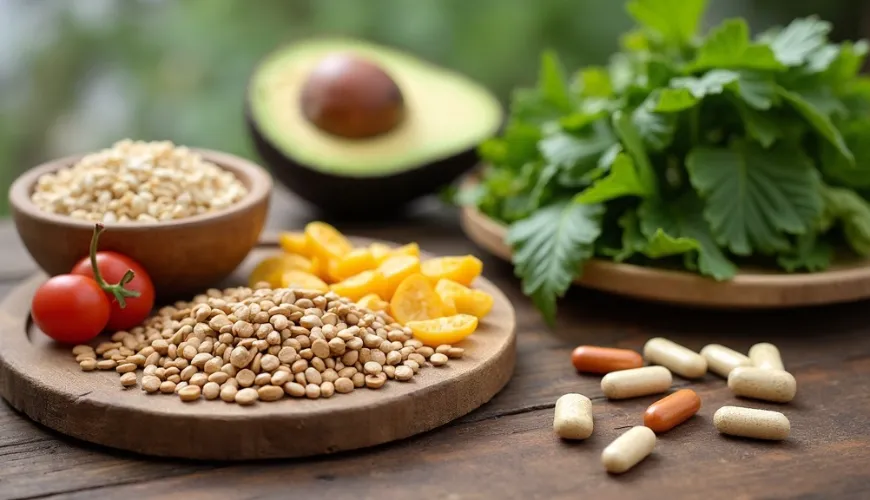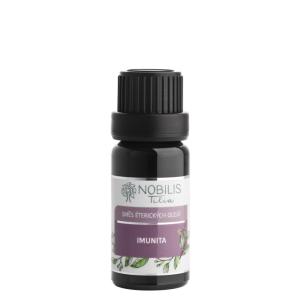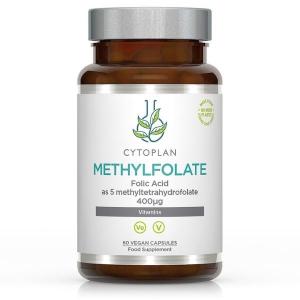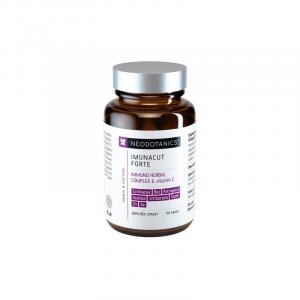
How to Use Probiotics with Food for Better Well-being and Immunity

How to Properly Use Probiotics with Food – and Why It Matters
The word "probiotics" has appeared so frequently in recent years that most people now associate it with a healthy lifestyle, whether it's about supporting digestion, immunity, or overall well-being. But how should probiotics actually be used? Should they be taken on an empty stomach or with food? And can the effect differ depending on what you eat with them? These are questions increasingly asked by those who not only want to invest in health but also want to maximize the benefits.
Probiotics Are Not Just "Healthy Bacteria"
To understand how to take probiotics with food, it's important to understand what probiotics actually are. They are live microorganisms which, when consumed in the right amounts, can positively influence the balance of intestinal microflora. Most of us have the idea that intestinal bacteria are some sort of "ecosystem" in our belly. And this idea isn't far from the truth.
Probiotic strains naturally occur in traditionally fermented foods such as yogurts, kefirs, sauerkraut, or kimchi. However, the modern market also offers a variety of dietary supplements – capsules, powders, or drops – that promise precise dosing and a stable supply of the right strains.
But mere consumption is not enough. For probiotics to really work, they must survive passage through the acidic environment of the stomach and reach the intestines, where they can perform their function. And this is where the question arises: does it make sense to take them with food?
Taking Probiotics with Food – What Does Science Say?
A study published in Beneficial Microbes (2011) showed that taking probiotics during meals – especially with meals containing fats – can significantly increase their survival. The reason is simple: food reduces the acidity of the stomach environment, thus increasing the chance that live cultures will pass unscathed into the intestines.
If you take probiotics on an empty stomach, you expose them to a highly acidic environment that can destroy some or most of the microbes. Conversely, food acts as a "protective shield." Fats also help protect microorganisms from decomposition, so fattier foods paradoxically contribute to the higher effectiveness of probiotics.
This sounds like great news – but it doesn't mean we have to eat a hamburger with every capsule. Even healthy fats, such as those from avocados, nuts, seeds, or olive oil, serve their purpose just as well. It's ideal to take probiotics during the meal, not immediately before or after.
Which Foods Enhance the Effectiveness of Probiotics?
If you want to get the most out of probiotics, it's worth focusing not only on how to take them, but also on what you consume them with. Some foods act as so-called prebiotics – that is, nourishment for the probiotic bacteria themselves. This includes fiber from certain types of vegetables and legumes.
Here are some examples of foods that create a perfect synergy with probiotics:
- Bananas – contain inulin, a type of soluble fiber that serves as food for probiotic bacteria.
- Onions and garlic – naturally support the growth of intestinal microflora thanks to their content of fructooligosaccharides.
- Whole grains, such as oats or barley, are rich in beta-glucans and other components that help "feed" the intestinal bacteria.
- Vegetables like chicory, leeks, or artichokes – these contain prebiotic fiber and support the growth of beneficial bacteria.
Combining these foods with a probiotic supplement taken during a meal can significantly boost its effectiveness. Additionally, it contributes to the overall balance of the intestinal microbiome, which affects not only digestion but also immunity, mood, and even sleep quality.
Try our natural products
Real-Life Example – How to Easily Incorporate Probiotics into Your Daily Routine
Imagine a typical morning for someone trying to live healthily but doesn't have an hour to prepare breakfast. A quick smoothie made from banana, oat milk, a spoonful of flax seeds, and a bit of almond butter creates the perfect base. You can add probiotic powder or open a capsule and mix its contents directly into the drink. Thanks to the content of fiber, healthy fats, and prebiotics, it becomes not only a nutritious breakfast but also a perfect "transport vehicle" for probiotics.
It's simple, quick, and effective. And all it takes is a bit of thought about when and how we consume probiotics.
Common Mistakes When Taking Probiotics
Even though it seems like taking probiotics couldn't be simpler, people often make small mistakes that reduce the effectiveness of the whole process. The most common is taking them on an empty stomach or without regard to the composition of the meal. Another mistake is consuming probiotics with very hot drinks or dishes – the temperature can kill the live cultures before they reach their target.
It's also important to monitor the composition of the supplement itself – some products contain only one or two strains, while others have ten or more. Not all strains survive equally well, so a product with microencapsulation or proven results in independent tests may be a better choice.
Why Probiotics Can Also Affect Our Mental Health
In recent years, there has been increasing talk about the so-called gut-brain axis. Studies from Harvard University and other prestigious research centers suggest that the balance of intestinal microflora can affect our mood, anxiety, and even symptoms of depression. It's no coincidence that the gut is referred to as the "second brain."
Regular use of probiotics – properly timed and combined with appropriate food – thus not only affects digestion and immunity but can also impact our mental well-being. As American neurologist David Perlmutter says: “A healthy gut is the foundation of a healthy brain."
When Will the Effect Be Noticeable?
Changes in intestinal microflora don't manifest overnight. Most experts agree that the first positive effects can be noticed after 2 to 4 weeks of regular use. For some people, it may be sooner – for example, in terms of improved digestion or regularity of bowel movements. For others, it may take longer, perhaps in the form of stronger immunity or improved mood.
Patience truly pays off here. And if the effects don't appear even after a longer period, it may be worth trying another product or consulting a specialist.
Thinking about how to properly use probiotics with food isn't an unnecessary obsession with details. It's about the difference between truly benefiting the body or just swallowing a capsule without effect. The combination of the right timing, suitable food, and patience can mean a significant turnaround in the quality of our digestive system – and possibly our overall daily well-being.







